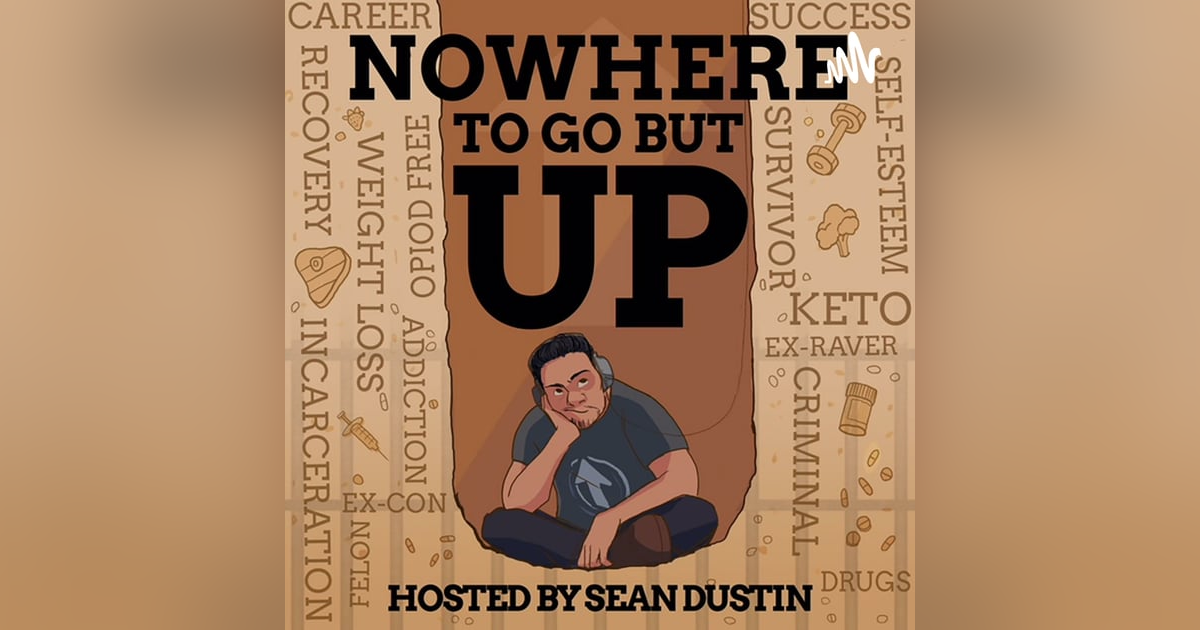00:00 Sean introduces(the wrong way) author, speaker, podcaster, performer, creativity coach, and second-time guest on The Nowhere to go but Up Podcast, Adrienne MacIain. Sean calls himself a d*** and Adrienne jokingly calls the whole world a d***. She explains the premise of her book and how it took 20 years to write. Self-victimization, a personal account of an abusive marriage, and helping people out of difficult situations are the main themes of her book. “No matter how far you’ve gone down a wrong road, turn back”. Sean is amazed that Adrienne has been to West Africa and she explains a little bit about her experiences with their hospitable culture. She continues that every culture has its upsides and downsides and where she visited, they don’t treat their women particularly well. She elaborates on the unfair and unbalanced dynamic of men and women there.
*
06:50 During her visit to Africa, Adrienne felt like she had to do “crazy things” in order to get by, giving her an enormous amount of empathy for these victimized women. She was able to get out of her abusive situation, but most of the time these women are already stuck from childhood. She further explains the physical and mental abuse they’re afflicted with. Adrienne spreads awareness about the people who think they can’t leave abusive relationships because of the Coronavirus. She lets people know that no situation is impossible and there are people and places that can help.
*
11:35 Sean speaks on a man’s tendency to be jealous and manipulative, driving them to control their partner’s friendships, make certain people off-limits, and threaten them with consequences. Adrienne gives an anecdote from her book; she was shocked to have witnessed a friend get hit in the face with a brick by their husband. American culture is tied in and how patriarchy and rape culture are normalized to a bizarre extent. Sean reiterates rumors of sexual deviancy with current and future presidents and how we’re forced to choose between the lesser of two predators.
*
16:15 Adrienne elaborates on the cycle of generational trauma that gets passed on with spousal abuse and reflects upon a horrific memory from childhood of her parents fighting. She wants to set the example for her daughter to never see her get disrespected so that precedent can be instilled in her as she grows up. Sean admits to having a past of being verbally abusive and states that mental and emotional abuse can be worse than physical abuse. Adrienne adds to that by touching on gaslighting, violence, and living in a constant state of fear.
*
20:25 Sean talks about his last girlfriend, how he would see his own abusive actions similarly depicted in movies they’d watch together and wondered if she was connecting the dots. He breaks down, in layman's terms, how explosive arguments play out and that he was the one that felt he had to end the relationship because of himself. Adrienne points out that “it takes two to tango” but we ultimately are responsible for controlling our own behaviors. She also details confrontations with her ex-husband and the peculiar way in which he would react in certain situations. Sean compares a specific thing he did to the “NBA flop.”
*
24:40 Sean admits the guilt he has felt knowing his past abusive tendencies were only continuing the patterns that he witnessed as a child growing up. He emphasizes how the importance of childhood is immensely undervalued and ages 0-13 are the most pivotal times to set a good example as a parent. “You’re raising f***ed up kids that are just going to create more f***ery in society.” According to Adrienne, the best examples that you can set for your kids are to respect yourself, trust your instincts, set boundaries, and respect other people’s boundaries. Sean points out that it is tough to label yourself as someone who is abusive, but you must in order to grow and get rid of those negative learned behaviors. For him, alcohol is always a major setback and brings out his worst behaviors. Adrienne admits that in the relationship after the abusive one, she adopted some of the same manipulative behaviors that were used on her. It came from a place of feeling powerless and trying to gain some of that power back, perpetuating the same cycles over again.
*
29:30 Sean questions his previous identity and what he was capable of during his period of abusive behavior. Feeling empathy was his “saving grace”, reminding him he is not a sociopath or narcissist. Adrienne probes Sean about his behavior and is curious to know if he was thrill-seeking when he hurt people. For him, and many people alike, it comes down to being unconscious and cutting ones self-off from feeling the hurt of hurting others. He touches on selfish motives like manipulation and bullying to get what he wanted. Adrienne’s philosophy is that most abusers are not sadistic and find no joy in hurting others,...












